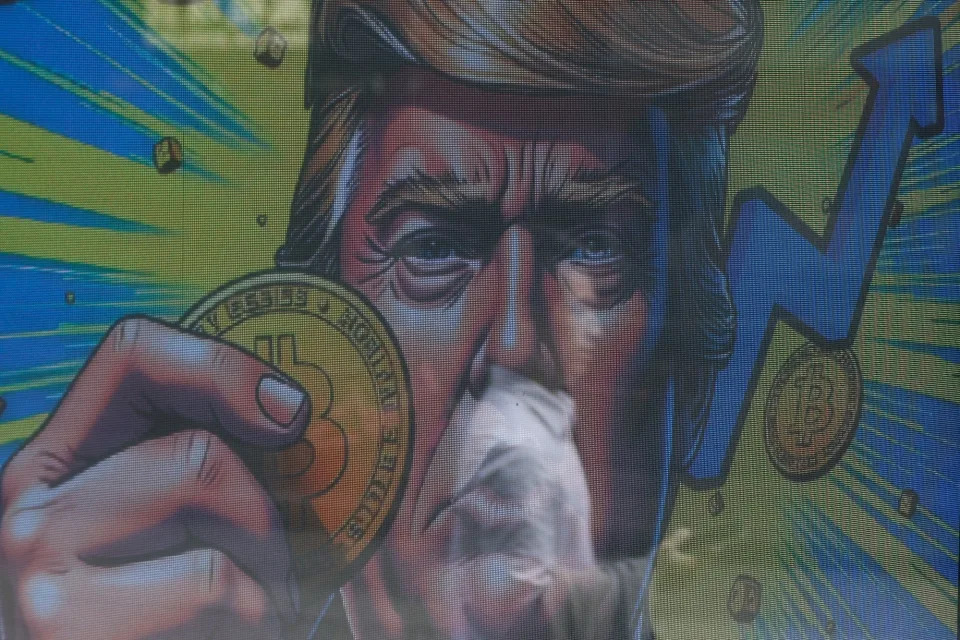News
Hong Kong's bitcoin ETFs could open to Greater Bay Area investors under new measures
New Chinese investment guidelines aimed at opening financial markets have raised hopes that mainland residents in the Greater Bay Area could soon invest in cryptocurrency-related products in Hong Kong such as bitcoin exchange traded funds (ETFs).
The People's Bank of China (PBOC) and four other financial regulators announced on Wednesday that they will "optimise" the Cross-boundary Wealth Management Connect scheme in the bay area and support mainland residents in the region in purchasing "eligible investment products" offered by financial institutions in Hong Kong and Macau. They also plan to expand the scope of participating institutions and qualified products.
The measures do not mention cryptoassets in Hong Kong specifically, but the city has launched a number of ETF products that invest directly in bitcoin and ether in its pursuit of becoming a virtual asset hub. Mainland investors are currently barred from trading crypto, but the new regulation raises the possibility of a narrow legal channel for such investments.
Do you have questions about the biggest topics and trends from around the world? Get the answers with SCMP Knowledge , our new platform of curated content with explainers, FAQs, analyses and infographics brought to you by our award-winning team.
The guidelines provide potential opportunities for the crypto and blockchain industry, according to Liu Honglin, founder of Shanghai-based Mankun law firm, which specialises in blockchain issues. It is "only a matter of time" before bay area mainland residents are allowed to access cryptocurrency ETFs, the lawyer told the Post on Thursday.

The price of bitcoin surpassed US$100,000 after Donald Trump won the 2024 US election. He ran on a crypto-friendly platform. Photo: Reuters alt=The price of bitcoin surpassed US$100,000 after Donald Trump won the 2024 US election. He ran on a crypto-friendly platform. Photo: Reuters>
Mainland Chinese citizens' appetite for virtual assets has grown along with bitcoin's ascent into a "mainstream alternative asset", Liu said. Faced with increasing investor demand, Chinese regulators may look to "channel the flow" to Hong Kong, he added.
Jill Wong, partner at the Hong Kong law firm Reed Smith Richards Butler, also said there were "encouraging signs of re-evaluation of crypto in mainland China", but noted that it was not obvious that the new measures would necessarily extend to cryptoassets.
"There has been speculation about whether investors from the mainland will be permitted to buy crypto ETFs ever since the first few ETFs were listed in Hong Kong," she said. "So far, this has not occurred, and it would be overly optimistic to expect that this - whether for GBA residents or other investors in mainland China - will change anytime soon."
The measure is among a broader set of guidelines that expand financial opening in the country's pilot free trade zones, including those in Shanghai and southern Guangdong province, as well as the free trade port of Hainan.
Regulators also proposed measures to facilitate the inflow and outflow of funds for foreign investors and improve the cross-border flow of financial data.
The urgency for China to act in the crypto sector has increased as the US government embraces the industry, according to Liu.
"If the US makes efforts in this area, China will certainly make preparations in defence," he said. "With a finite amount of bitcoin supply, the more China can influence and control, the less there is for the US and other countries."
In recent years, China has intensified its crackdown on various cryptocurrency activities on the mainland, citing capital outflow risks and damage to financial stability.
While Beijing gave tacit approval to Hong Kong to boost its virtual asset sector in late 2022, the central government has given no indication that it intends to loosen controls on the mainland. Hong Kong regulators do not allow the city's licensed crypto trading platforms to serve mainland Chinese residents.
A potential opening up to the broader bay area - which includes nine Guangdong cities along with Hong Kong and Macau - could give a boost to the city's virtual asset hub ambitions, according to Liu.
"Hong Kong has already established the framework and business model for the products, but lacks a user base and funds," Liu said. "It's hard to find a large number of users and capital outside mainland China."
This article originally appeared in the South China Morning Post (SCMP) , the most authoritative voice reporting on China and Asia for more than a century. For more SCMP stories, please explore the SCMP app or visit the SCMP's Facebook and Twitter pages. Copyright © 2025 South China Morning Post Publishers Ltd. All rights reserved.
Copyright (c) 2025. South China Morning Post Publishers Ltd. All rights reserved.

